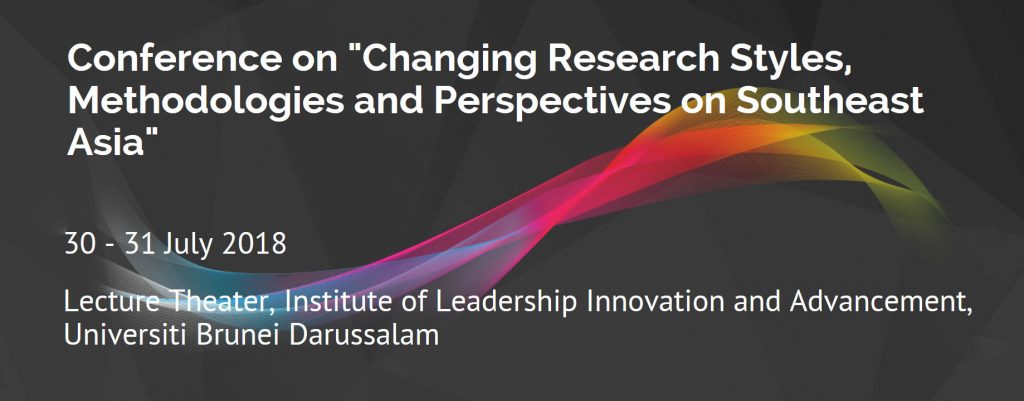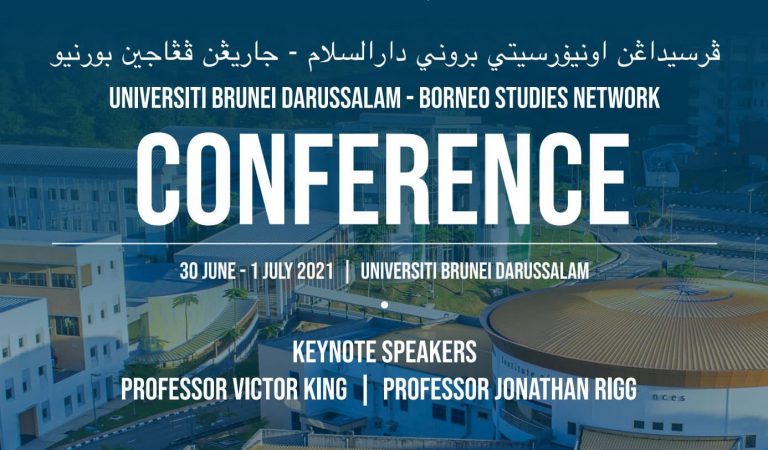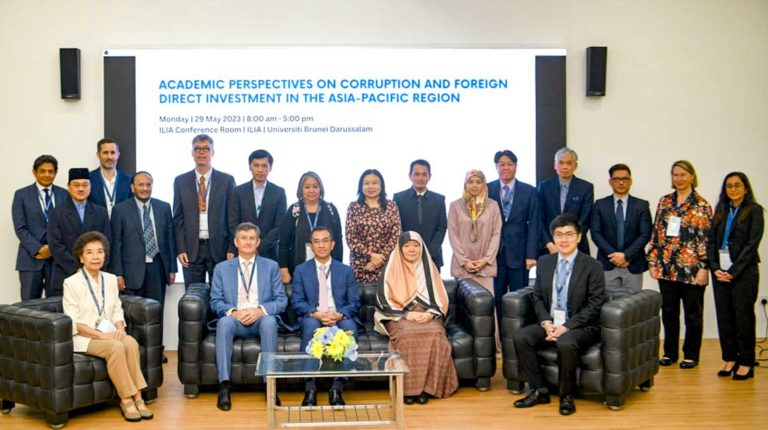On 30-31 July 2018 the Institute of Asian Studies (IAS) and the Faculty of Arts and Social Sciences (FASS) at Universiti Brunei Darussalam held a conference on “Changing Research Styles, Methodologies and Perspectives on Southeast Asia.”
The conference was co-chaired by Professor Victor T. King (IAS) and Associate Professor Jeremy Jammes (IAS) and featured a keynote presentation by Jonathan Digby Rigg of the National University of Singapore. Papers were presented by Dr. Syed Farid al-Attas (NUS), Dr. Hoon Chang Yau (IAS), Dr. Zawasi Ibrahim (IAS/FASS), Dr. Kathrina Mohd Daud (FASS), Dr. Azmi Mohamad (Sultan Omar ‘Ali Saifuddien Centre for Islamic Studies, UBD), Dr. Victor T. King, Dr. R. Michael Feener (University of Oxford), Dr. Fernando N. Zialcita (Ateneo de Manila University), Dr. Lian Kwen Fee (IAS), Dr. Liam C. Kelley (IAS), Dr. Jeremy Jammes, Dr. Mala Rajo Sathian (University of Malaya), Dr. James McLellan (FASS) and Dr. Noor Azam Haji-Othman (FASS). Sessions were moderated by Dr. Grace V. S. Chin (Universiti Sains Malaysia), Dr. Magne Knudsen (FASS) and Victor T. King.
The theme of the conference was as follows:
Going back to the epistemological roots of any research in the social sciences and humanities, this conference aims to question the ‘regime of truth’ generated at the data-gathering level. Are there still some research areas to explore in Southeast Asia studies? Are there Southeast Asian societies and cultures still considered as ‘exotic’’, not-yet-explored and ready for new scholarly investigation? Can we come up with new methodologies, research materials and concepts to understand the tumultuous and rapid transformation of Southeast Asian peoples and cultures? Out of these changes, what is new and exciting empirically and conceptually, and what has transformed our current understandings of the human condition in Southeast Asia? How have our changing approaches and the changing societies and cultures which we study influenced what we have discovered and how we have analyzed those findings in changing socio-cultural, economic and political contexts?
To tackle all these questions, our conference will give the opportunity to researchers in a range of disciplines embracing the social sciences and humanities to reflect on their personal relationship to the terrain, the fieldwork or the engagement with archives and library materials. But if a personal account might illuminate the motives and interests that could have inspired and edified research, it can also challenge our perceptions of the project of accessing and gathering research materials, the subject/object researched, and the societies themselves. We then need to incorporate changing approaches to field and library-/archival-based research: increasing team research, multisite, trans-national, outsider-insider collaboration, multidisciplinary perspectives, increasing use of the internet and accessing materials beyond libraries and archives, the increasing importance of ‘the visual’, the materialities, the increasing concerns about reflexivity, the need to address the inexorable increase in the speed and complexity of change and the impulse of mobility (including the increasing urbanization of those populations which were primarily studied in rural contexts). Therefore, an important theme for conference participants will be based on a diachronic approach, encouraging researchers to reflect on and rethink their experiences of these changes both in their continuing personal and institutional research trajectories and in the ongoing need to address the ever-changing subjects of their studies.




